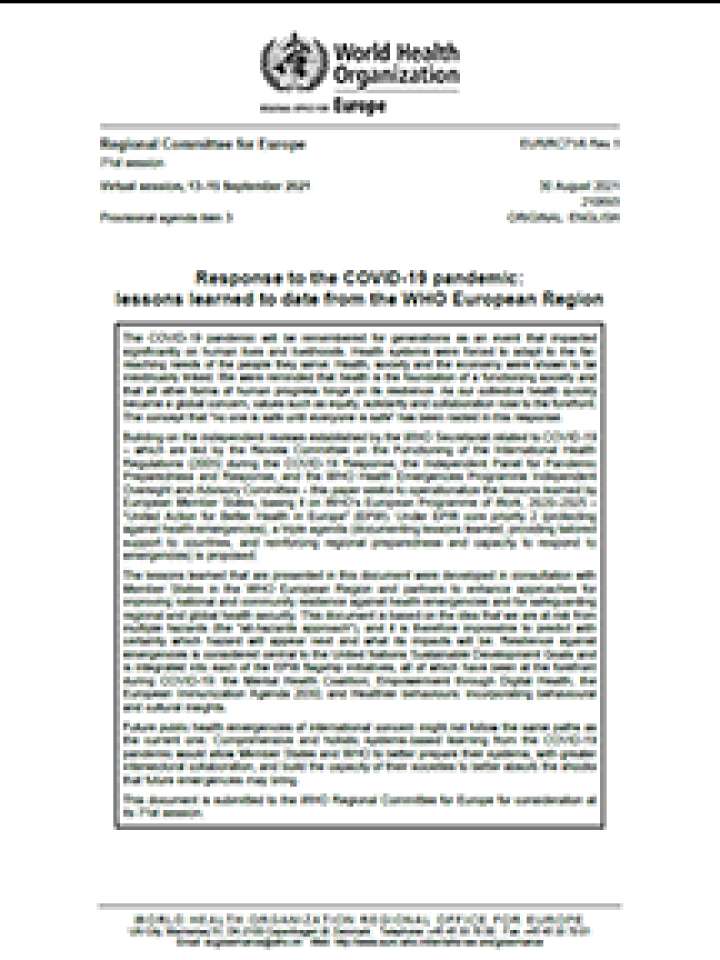This report discusses the COVID-19 pandemic will be remembered for generations as an event that impacted significantly on human lives and livelihoods. Health systems were forced to adapt to the far-reaching needs of the people they serve. Health, society and the economy were shown to be inextricably linked. We were reminded that health is the foundation of a functioning society and that all other forms of human progress hinge on its resilience. As our collective health quickly became a global concern, values such as equity, solidarity and collaboration rose to the forefront. The concept that “no one is safe until everyone is safe” has been rooted in this response.
Building on the independent reviews established by the WHO Secretariat related to COVID-19 – which are led by the Review Committee on the Functioning of the International Health Regulations (2005) during the COVID-19 Response, the Independent Panel for Pandemic Preparedness and Response, and the WHO Health Emergencies Programme Independent Oversight and Advisory Committee – this paper seeks to operationalize the lessons learned by European Member States, basing it on WHO’s European Programme of Work, 2020–2025 – “United Action for Better Health in Europe” (EPW). Under EPW core priority 2 (protecting against health emergencies), a triple agenda (documenting lessons learned, providing tailored support to countries, and reinforcing regional preparedness and capacity to respond to emergencies) is proposed.
The lessons learned that are presented in this document were developed in consultation with Member States in the WHO European Region and partners to enhance approaches for improving national and community resilience against health emergencies and for safeguarding regional and global health security. This document is based on the idea that we are at risk from multiple hazards (the “all-hazards approach”), and it is therefore impossible to predict with certainty which hazard will appear next and what its impacts will be. Resilience against emergencies is considered central to the United Nations Sustainable Development Goals andis integrated into each of the EPW flagship initiatives, all of which have been at the forefront during COVID-19: the Mental Health Coalition; Empowerment through Digital Health; the European Immunization Agenda 2030; and Healthier behaviours: incorporating behavioural and cultural insights.
Future public health emergencies of international concern might not follow the same paths as the current one. Comprehensive and holistic systems-based learning from the COVID-19 pandemic would allow Member States and WHO to better prepare their systems, with greater intersectoral collaboration, and build the capacity of their societies to better absorb the shocks that future emergencies may bring.
